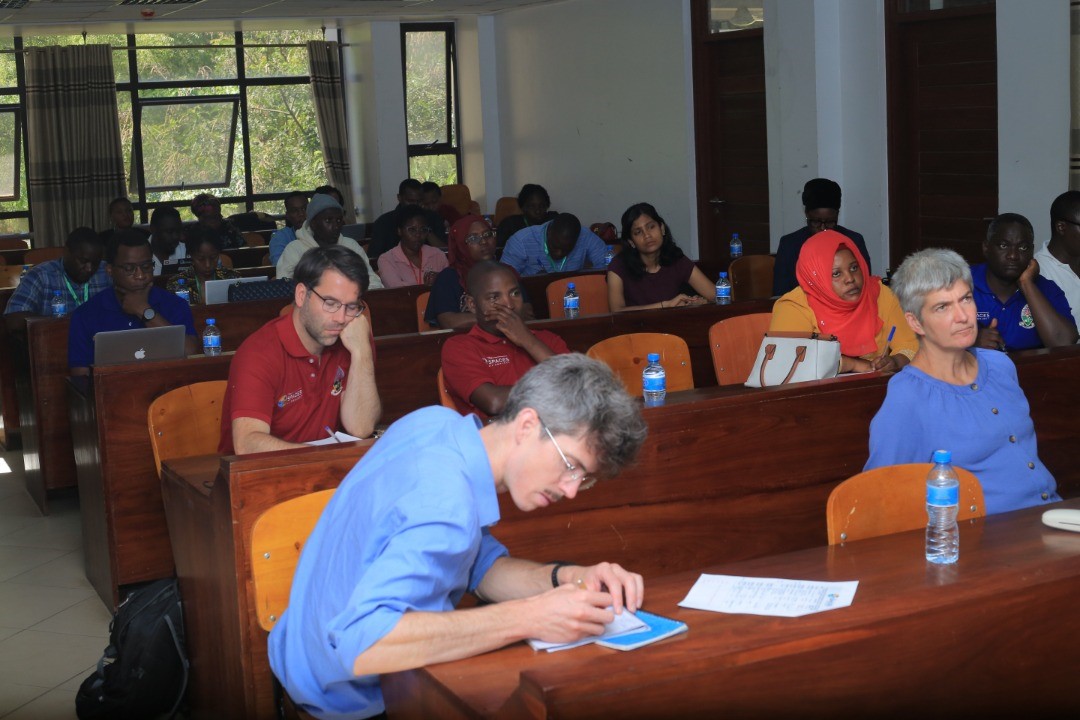News
DUCE Research team in collaboration with six international universities conducted the second workshop on “Sustainable Plastic Attitudes to Benefit Communities and their Environments (SPACES). The objective of the research is to come up with the best interventions, policies and regulations that mitigate impacts of plastic pollution. The event took place recently at DUCE grounds. .
Speaking during the event, the Principal Investigator of SPACES project, Prof. Kate Hampshire from the Department of Anthropology, Durham University-United Kingdom applauded the Government of Tanzania for imposing a ban on single-use plastics.
"I really applaud the government’s efforts to ban single-use plastics. We need to work in partnership with other governments across the world to fight against this problem. I think Tanzania can be one of the forerunners in addressing the problem." She said.
She added that plastic waste is a serious world problem and insisted that some countries like Tanzania are far ahead in managing waste products. She called upon multiple stakeholders to join the chain.
On her part, the project coordinator and a Senior Lecturer in the Department of Geography and Economics, Dr. Emiliana Mwita noted that the team is collecting data on how best to involve community members to fight against plastic wastes.
She said the improper disposal of plastic wastes is harmful to our environment and people’s health, hence researchers are investigating factors that encourage the continuous use of plastics and their improper disposal.
Moreover, Dr. Mwita informed that the project will unfold in four work packages. The first work package will seek to find out the sources of the plastics, how they get access into the country, why people use them and where do they end. The second work package will deal with the impact of the plastic wastes on the environment. This group will investigate how such wastes can endanger soils, water and plants which could in turn harm people’s lives.
The third work package will address financial and non-financial incentives necessary to change behaviours and business models to reduce the quantity of produced and distributed plastics. The final work package will use participatory methods to translate project data and findings into a decision-making framework (DMF) for plastic waste management recommendations and test public and stakeholder responses to these recommendations.
Correspondingly, a representative from Malawi University of Business and Allied Sciences, Dr. Kondwani Chidziwisano said that he has learned a lot with regard to what the government of Tanzania is doing to curb improper disposal of plastic wastes.
However, other partnered higher learning institutions which are jointly implementing the similar project as UDSM-DUCE under the auspices of the United Kingdom Research and Innovation (UKRI) are University of Malawi and other universities from United Kingdom which are Stirling University, University of Liverpool School of Tropical Medicine, Durham University, University of Strathclyde and Heriot-Watt University.
Other researchers involved in this project which is conducted at Msimbazi river catchment in Dar es Salaam are Prof. Daniel Shilla (UDSM-Main Campus), and others from DUCE include Dr. Cresensia Massawe, Dr. Dativa Shilla, Dr. Alexander Songoro and Mr. James Mwesiga.
On the second day, the research team from University of Malawi and those from United Kingdom made a courtesy visit to the College Management for discussions pertaining further collaborations.
Other News
Fri, 19.Apr.2024 : DUCE's Research and Innovation Week BeginsThu, 28.Mar.2024 : DUCE academic staff trained on turnitin for safeguarding the academic integrity
Sun, 17.Mar.2024 : The Department of Chemistry hosts the 7th Chemistry festival
Sun, 17.Mar.2024 : Future teacher education for sustainable development (FUTE) team conducts a working session to lay the project foundation
Tue, 12.Mar.2024 : BMT donates soccer balls to Sports and Games Unit at DUCE


 presenting the opening remarks.jpg)
 presenting his views during the session.jpg)
 signing the visitors’ book.jpg)

 in a group photo with SPACES research team and major stakeholders.jpg)
 in a group photo with SPACES research team.jpg)